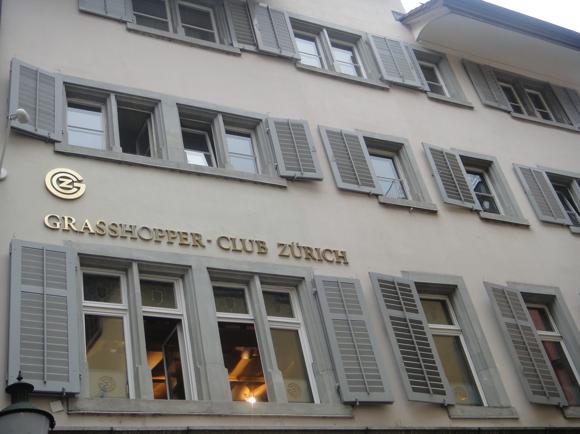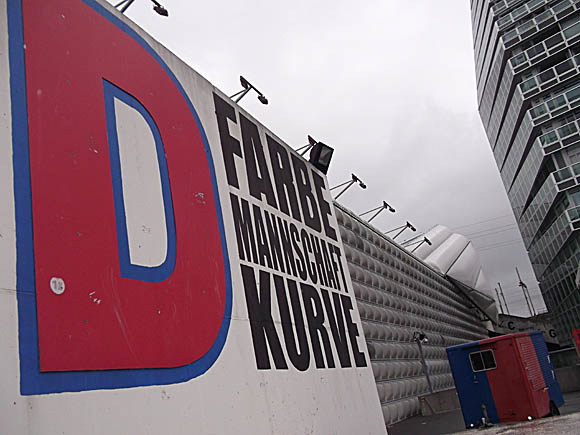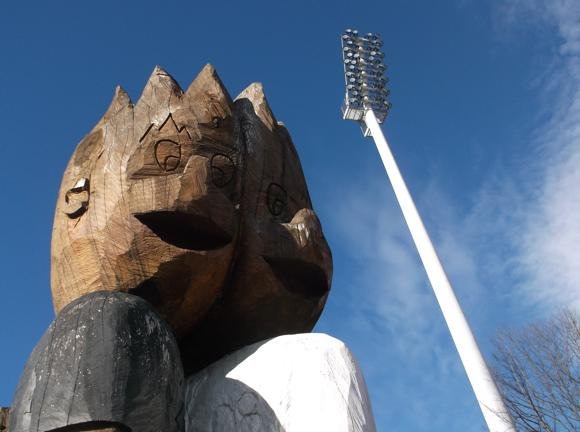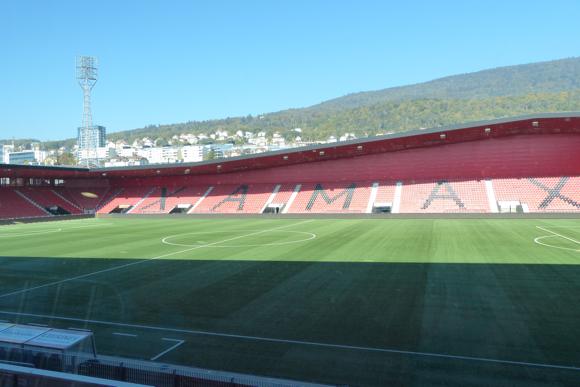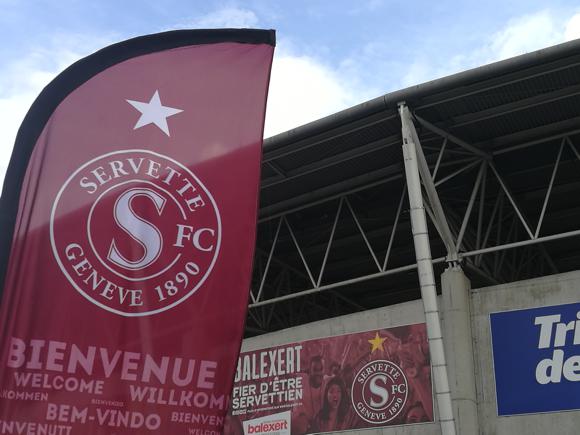A fan’s guide – the club from early doors to today
Quickly promoted back to the Swiss Super League in 2017, FC Zürich are the populist team in Switzerland’s most populous city. League champions a dozen times, ‘FCZ’ share the Letzigrund with local rivals Grasshoppers.
Der Stadtclub (‘The City Club’) date back to 1896 but few details are known of the merger of FC Viktoria, FC Excelsior and FC Turicum, who were created by junior members of Excelsior. Hans Gamper, the historic figure who, as Joan Gamper, founded FC Barcelona, was involved in the process and may have played for the new club as captain for a season.

The original FC Zürich wore red, changing to their current blue and white in 1909, by which time they had picked up a first Swiss title, beating two teams from Berne in the play-off for the 1902 championship. Under Viennese coach Jan Studnicka, FCZ won a second title in 1924. Star player was 21-year-old Paul Sturzenegger, who would then go on to score five goals in Switzerland’s run to the Olympic Games football final.
A year later, FCZ built the Letzigrund, a multipurpose sports stadium for the club’s various activities. Soon to stage Switzerland’s international matches and cup finals, it also witnessed the slow demise of its owners, forced to sell the arena to the City of Zürich a decade later.
FCZ only picked up after the legendary Edi Nägeli became club president in 1957. With his trademark hat and cigar, this owner of a chain of tobacco kiosks oversaw his beloved Stadtclub during their glory years. With German international Klaus Stürmer in prolific form and locally born Köbi Kuhn a precocious midfielder, FCZ won the first of six titles in the Nägeli era in 1963.

A year later, winning through on the toss of a coin over Galatasaray in front of 600 at the Stadio Flaminio in Rome, FCZ reached the semi-final of the European Cup. Ageing members of the historic Real Madrid side still had enough in the tank to beat the Swiss 6-0 at the Bernabéu.
In the warm-up for the home leg against Galatasaray, a Swiss second division XI match featured 17-year-old striker Fritz Künzli, whom the eagle-eyed Nägeli picked up immediately. His goals helped FCZ to do the double in 1966 and win another title in 1968. Knocking out Barcelona and Nottingham Forest, the Zürich side reached the quarter-finals of the Fairs’ Cup that same year, but didn’t make further progress in Europe until René Botteron became an established figure in midfield.
Winning three consecutive titles in the mid-1970s, goals first coming from Daniel Jeandupeux, then Yugoslav international Ilija Katić and Sicilian striker Franco Cucinotta, FCZ beat Rangers and Dynamo Dresden to make another European Cup semi-final in 1977. Kevin Keegan’s Liverpool then exposed another gulf in class with a 6-1 aggregate win.

After Nägeli’s death in 1979, Jeandupeux turned coach to take Zürich to the Swiss title in 1981 before a two-decade long period of stagnation and relegation.
Thanks to a goalscoring machine from Conakry, the Guinean Keita, and former Servette star Lucien Favre as coach, Zürich sparked back to life. Winning the Swiss Cup in 2005, the following season FCZ trailed incumbent champions Basel in the league.
Needing a win in the last game at Basel’s impregnable fortress of the St Jakob-Park, the home side looking for a third straight title, FCZ took the lead through Keita. Going into stoppage time, the score pegged at 1-1, Zürich’s Iulian Filipescu struck with the very last kick of the game, giving the visitors a shock title win and igniting the worst riot in Swiss football history. Filipescu was one of several FCZ players targeted by Basel hooligans, using fists, feet and fireworks.
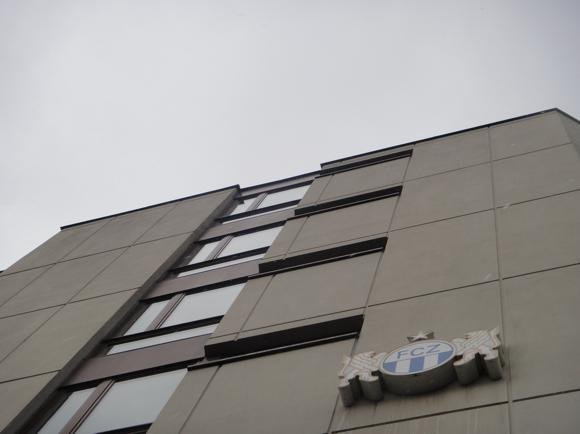
After Keita left for Saudi Arabia, Brazilian attacking midfielder Raffael stepped into his scoring role to keep the title at the Letzigrund for another season, FCZ staying just ahead of a very useful Basel side out for revenge. Favre’s consecutive titles saw him snapped up by Hertha Berlin before, under Bernard Challandes, Zürich won the league again in 2009. Quality play from Kosovo-born Swiss international midfielder Almen Abdi helped achieve it.
Making the Champions League group stage for the first and so far only time, FCZ landed in the glamorous company of Real Madrid, Milan and Marseille, filling the rebuilt Letzigrund and gaining a win and a draw. Two years later, Bayern Munich had too much for the Swiss in the play-off round before the group stage.
Mediocre domestic form in recent seasons has been tempered by two Swiss Cup wins, the first over now bitter rivals Basel in 2014, the second in 2016 coinciding with relegation from the Swiss Super League for the first time since 1988. Fans tried to storm the players’ tunnel despite the team’s 3-1 win over Vaduz – Lugano had beaten St Gallen 3-0 to stay up.
Losing only three games and scoring 91 goals, including 16 from 20-year-old Senegalese striker Moussa Koné, FCZ were crowned 2017 Challenge League champions, earning a swift return to the top tier.
Stadium Guide
The field of dreams – and the stands around it
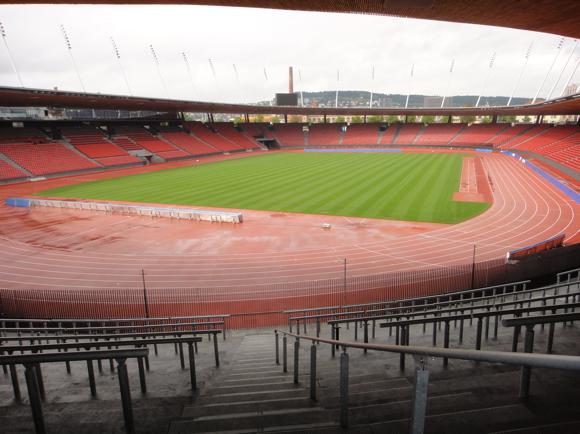



FC Zürich built the Letzigrund in 1925 but the economic conditions of the 1930s meant that the club had to sell it on to the City of Zürich just over a decade later.
Chosen as a host stadium for Euro 2008, the Letzigrund was completely rebuilt in 2007, when Grasshoppers moved in to groundshare.
Traditionally, FCZ fans occupy the Südkurve, with standing places for domestic fixtures in Sektor D, blocks 24-27. Away fans are allocated Sektor B at the opposite end, blocks 9-13.
For more background on the stadium, details of transport and surrounding bars, see Letzigrund.
getting in
Buying tickets – when, where, how and how much
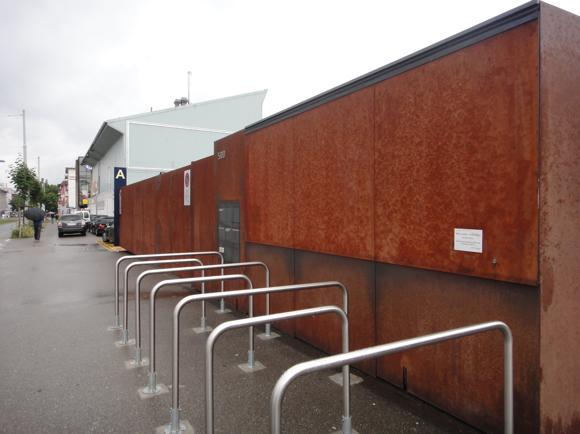

Advance tickets are distributed in person from the FCZ Fanshop (Mon-Fri 10am-6.30pm, Sat 10am-5pm) at Werdstraße 21, close to Stauffacher tram stop, on the same No.2 line as the Letzigrund, and from several Ticketcorner outlets around town, such as the Coop City supermarket at Theaterstraße 18 and Manor department store at Bahnhofstraße 75. There are also online sales via Eventim Sports.
On the day, ticket windows at the stadium open 90min before kick-off.
Prices for the 2017-18 season in the Super League rose slightly from those in operation during 2016-17. Premium rates are imposed for the visit of Basel and derby with Grasshoppers. The cheapest admission of SF20 is for standing in the home end (Sektor D, blocks 24-27) and sitting in the away end (Sektor B). Sitting in the home end (Sektor D, blocks 28-31) costs SF25. It’s SF40 to sit in sideline Sektor C, SF50 for a prime seat in Sektor A.
Visitors aged 7-18 are charged SF20 in the away sector, SF15 to stand, SF20 to sit in the home sector. Admission is free to all under-6s.
what to buy
Shirts, kits, merchandise and gifts
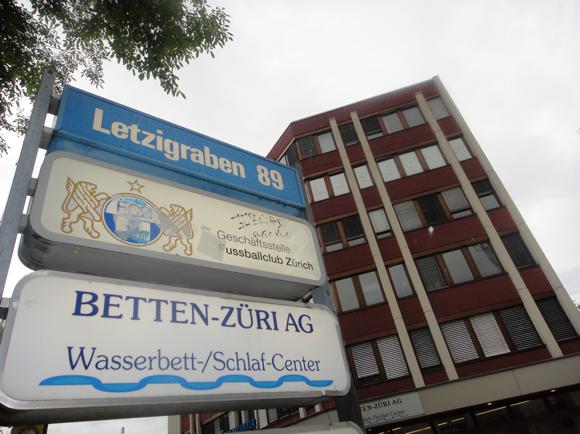
Unlike Grasshoppers, FCZ run their own Fanshop (Mon-Fri 10am-6.30pm, Sat 10am-5pm) in town, at Werdstraße 21, close to Stauffacher tram stop, on the same No.2 line as the Letzigrund.
Merchandise includes branded Swiss Army knives, T-shirts bearing the foundation date of 1896, belts and beer glasses.
In the same building, the FCZ-Museum (same opening hours, admission free) contains a modest collection of pennants, trophies and historic club shirts.
Where to Drink
Pre-match beers for fans and casual visitors

For full details on bars surrounding the stadium, see Letzigrund. The one leaning most towards FCZ is the Versus-Bar at Badenerstraße 281.
When the club had its offices on Letzigraben, the nearby Café Letzistübli at Albisriederstraße 171, by the Hubertus tram stop, catered to employees and officials but there’s probably little reason to trek down Letzigraben to visit now.


